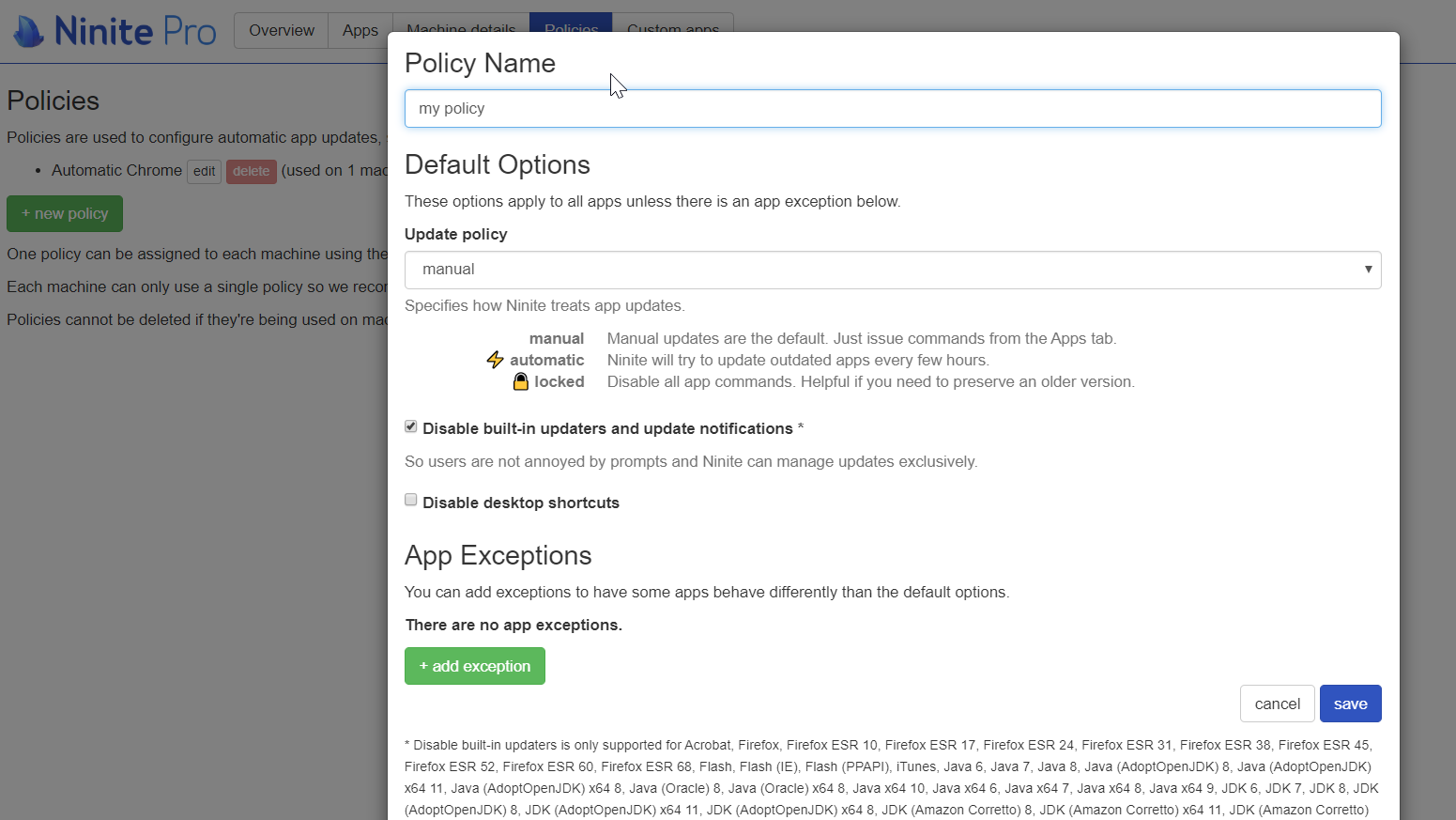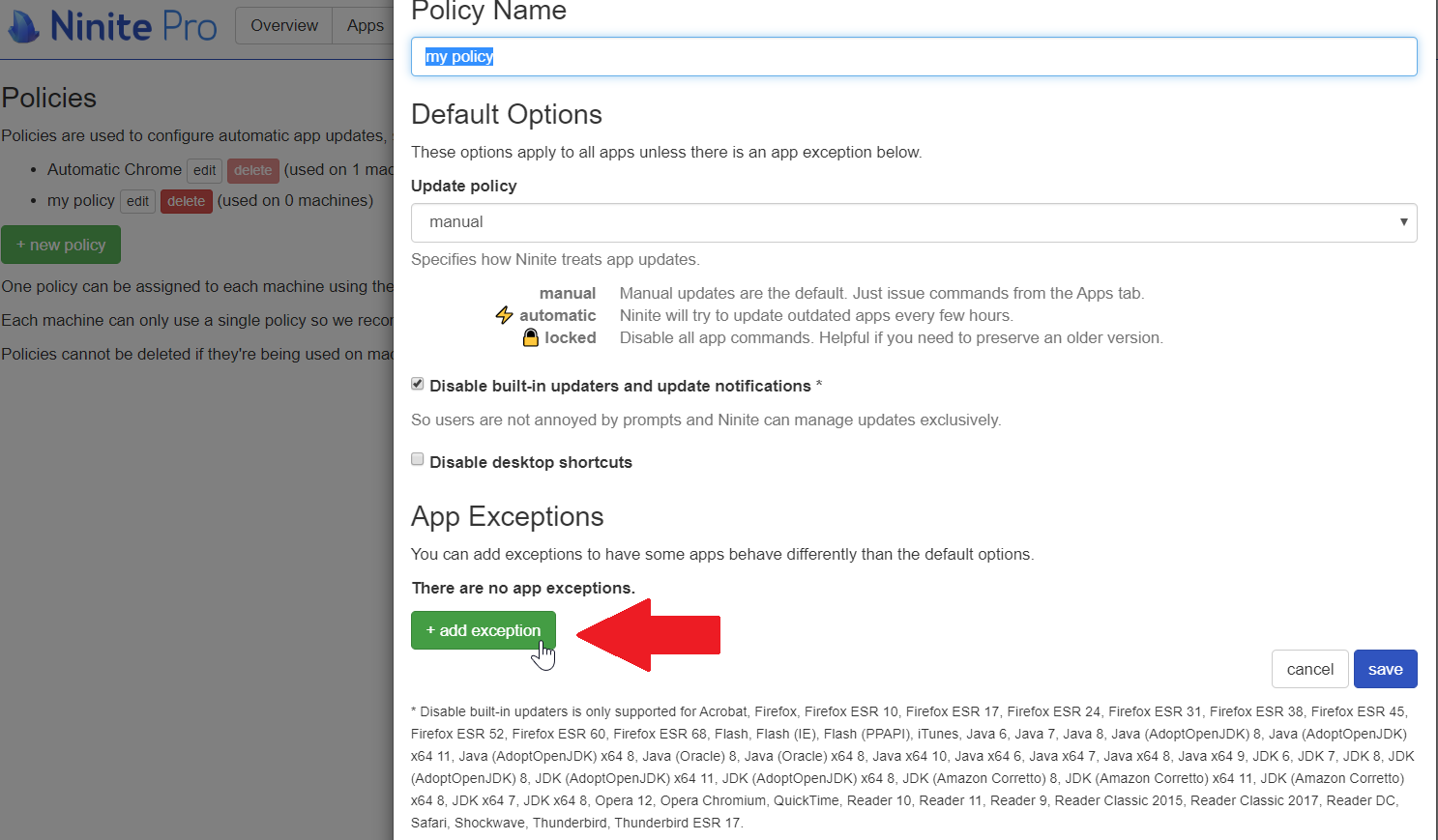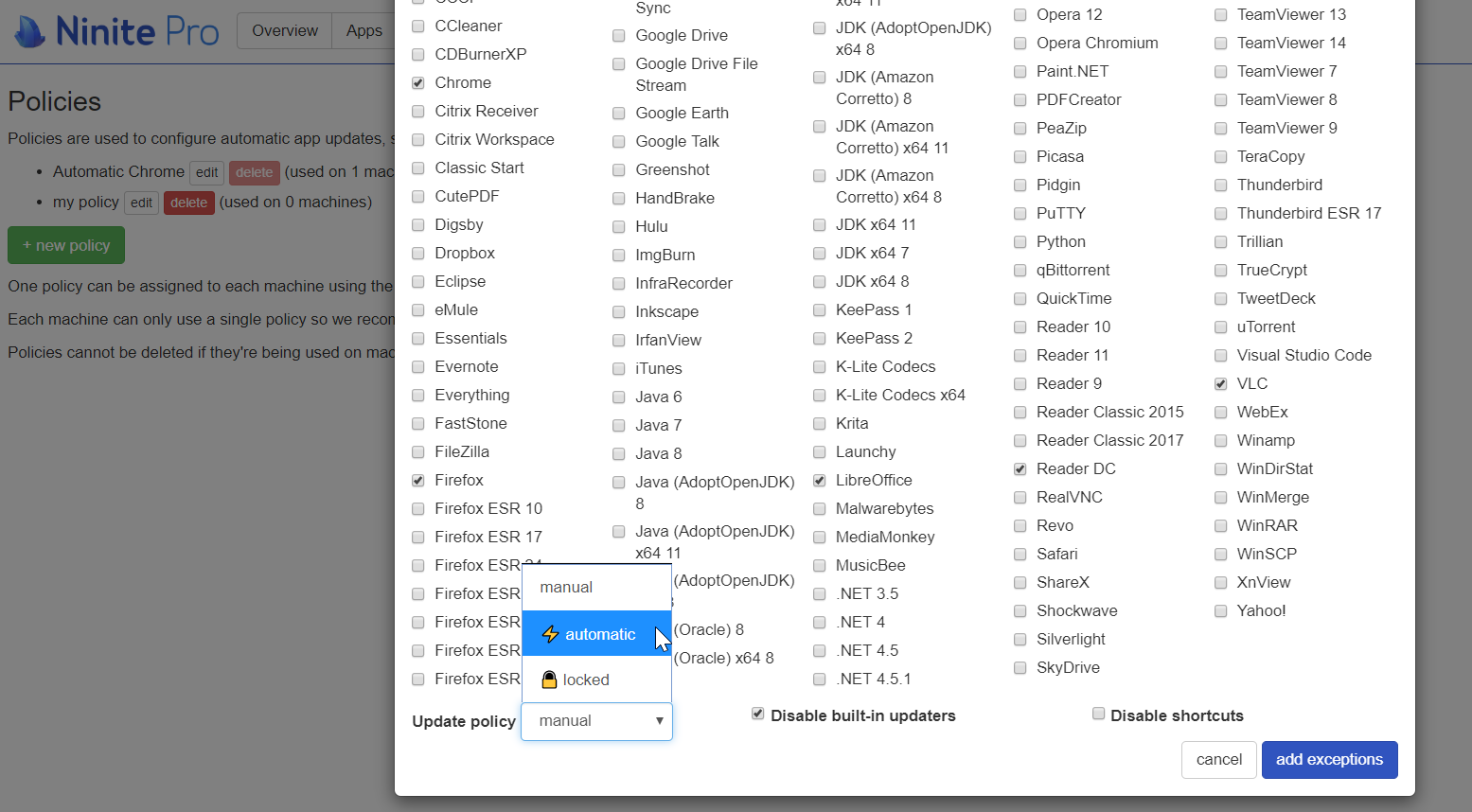Policies¶
Policies provide a way to modify when and how Ninite updates an app.
Creating a Policy¶
To create a new policy, go to the Policy tab in the interface, and click the button for “+ new policy”. From there, you can give the policy a descriptive name, choose the Update Policy type (Manual, Automatic, or Locked), and select options such as “Disable built-in updaters and update notifications” or “Disable desktop shortcuts”.

Assigning a Policy to a Machine¶
To assign a policy to a machine, go to the Machine Details tab and select a machine or machines. You can then use the Policy drop-down to select your policy (by name), and set it with the “set policy” button.

Manual Policies¶
A manual update policy is what is used by all machines by default, even if they are not explicitly assigned any update policy at all.
This means that if an app is out of date for a machine, it will be highlighted in red in the interface, but will not get updated until you select that cell and then click “Update”.
If manual updates are the default, then why have a Manual Policy available?
The answer is because policies allow for Exceptions. If you have only one or two apps that you would like to update automatically, then you can create a Manual Update Policy, and then add an Exception where you select the one or more app(s) you want to still update automatically, and set those apps to an automatic update policy instead of manual. It saves time from doing the opposite where you would create an Automatic Policy and add an Exception selecting almost all apps and setting them to manual.
Automatic Update Policies¶
An automatic update policy sets an app or apps to be updated automatically as soon as Ninite has a new version available. This process runs every couple of hours depending on the number of agents you have and the load on the server at the time, and provides a hands-off way to keep the apps on your machines up to date.
Note: This policy does not install apps automatically. It only keeps up to date the apps that are already installed. Installs must be pushed manually from the Apps tab of the interface.
Locked Policies¶
A locked update policy locks down the Ninite web interface to prevent apps from being updated or installed via the Ninite web interface.
It does NOT prevent apps from being installed or updated in other ways. Local computer users can still install/update apps!
It also does NOT prevent apps from being installed via Classic Ninite Pro.
It also does NOT uninstall any apps.
One reason you might use a locked policy is if you have a team of admins managing updates and installs via the Ninite web interface, and you want to ensure that an app does not accidentally get updated or installed through the Ninite web interface.
Policy Exceptions¶
Exceptions allow you to create an update policy that only applies to certain apps, but not all.
For example, let’s say you want most apps to be updated automatically, but not ALL apps. Let’s say you want Firefox to only update when you manually indicate for it to update (perhaps so you can vet the new version on a test machine first). You could create a Policy set to Automatic, and then add an Exception, select Firefox, and change the Update Policy type for the Exception to Manual.
Similarly, you might want only a select handful of apps to update automatically, but you want to be able to hold off on any other app updates except when you manually push one down. In this case, you could create a Policy with the Update Policy type set to Manual, then add an Exception wherein you select some apps and select an Update Policy type of Automatic.
Below, you can see the option to add an Exception to a policy.

Below, you can see what the Exception settings look like.
